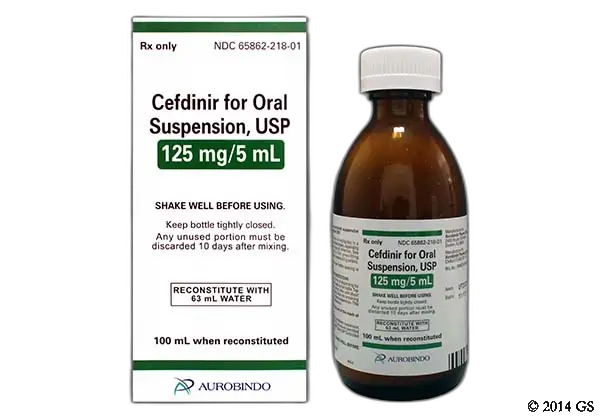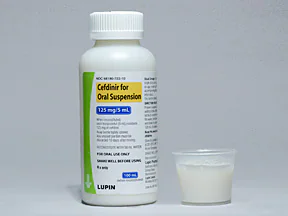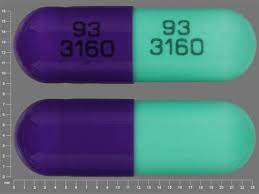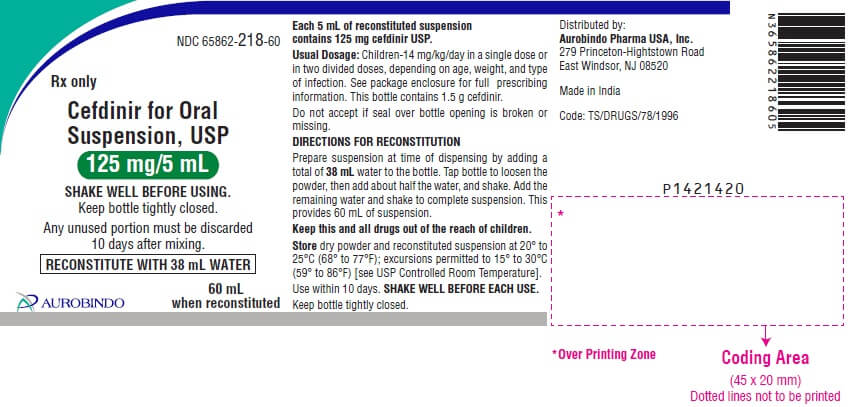No, Omnicef does not need to be refrigerated. The active ingredient in Omnicef is cefdinir, which is a stable compound that can remain effective at room temperature. In fact, the manufacturer recommends storing it between 68°F to 77°F (20°C – 25°C).
Additionally, most pharmacies store this medication on their shelves at room temperature and do not require refrigeration. However, if you receive liquid forms of this medicine from your doctor or pharmacy for use with infants or young children, then it should be stored in the refrigerator and should not be used beyond 14 days after opening.
In this blog post, we will explore the question of does Omnicef need to be refrigerated. We will discuss the factors that can affect the stability of the medication, and provide guidance on how to properly store and handle Omnicef.

What is Omnicef?
Omnicef is an antibiotic medication used to treat a variety of bacterial infections. While it does not need to be refrigerated, some patients may find that storing their Omnicef in the refrigerator helps them remember when and how much they have taken. Additionally, any unused or expired Omnicef should always be stored in the refrigerator for safety purposes.

Does Omnicef Need to Be Refrigerated – Learn the Science!
Omnicef is a widely used antibiotic medication that belongs to the cephalosporin class of drugs. The active ingredient in Omnicef is cefdinir, which is highly sensitive to temperature, light, and moisture.
The science behind the need to store Omnicef in refrigeration lies in the fact that this medication can degrade rapidly if exposed to higher temperatures, leading to a loss of effectiveness and potential adverse effects on the patients. By storing Omnicef in refrigeration, the medication can maintain its stability and potency for a longer duration.
Therefore, it is crucial to adhere to the recommended storage conditions to ensure optimal therapeutic outcomes and patient safety.
Does Children’s Cefdinir Need to Be Refrigerated?
No, Children’s Cefdinir does not need to be refrigerated. This prescription antibacterial medicine comes in a dry powder form that can easily be stored at room temperature for up to 14 days after it is opened and mixed with water or other liquids. It must always be kept out of direct sunlight and away from extreme temperatures.

Cefdinir 250 Mg Dosage for Child
Cefdinir 250mg is a widely used antibiotic for children. It is typically prescribed once daily for the treatment of bacterial infections in children aged 6 months or older, and the dosage should be determined by your child’s doctor based on their weight.
Cefdinir 250mg helps to treat certain types of bacterial infections such as bronchitis, ear infections, sinus infections, and skin infections.
Why Can’t You Refrigerate Cefdinir?
Cefdinir, an antibiotic used to treat certain types of bacterial infections, should not be refrigerated because it can cause the drug to break down more quickly. Refrigeration may also lead to clumping and reduce the effectiveness of cefdinir.
It’s important to store cefdinir at room temperature (between 68-77 degrees Fahrenheit) in a dry place away from direct sunlight or heat sources.

What Happens If You Refrigerate Cefdinir?
Refrigerating Cefdinir (an antibiotic) is not necessary and may reduce the effectiveness of the medication. Keeping it at room temperature (below 77 degrees Fahrenheit) is recommended, and storing it in a dry place away from light will help maintain its potency.
Additionally, keeping this medication out of reach of children is important, as accidental ingestion can be dangerous.
I Accidentally Refrigerated Cefdinir
As a healthcare professional, it is important to handle medications with care and precision. However, mistakes can happen even to the most diligent individuals. If one accidentally refrigerates cefdinir, it is important to assess the medication’s integrity before administering it.
Refrigerating cefdinir may cause the medication to lose its potency, rendering it ineffective in treating the intended condition. It is recommended to check the expiration date and consult with a pharmacist or healthcare provider to determine if the medication is safe to use.
In the future, it is important to store medications in their proper conditions to ensure their effectiveness and safety.
Does Liquid Cefdinir Need to be Refrigerated?
Cefdinir is an antibiotic medication commonly used to treat bacterial infections. Liquid cefdinir is a suspension that is typically prescribed to children who have difficulty swallowing pills. It is important to note that liquid cefdinir does not require refrigeration, as long as it is stored at room temperature and not exposed to extreme heat or sunlight.
However, if the medication is not used within the prescribed time period or if it has been contaminated, it may need to be refrigerated.
It is always best to follow the instructions provided by the prescribing healthcare professional or the medication label to ensure the effectiveness and safety of the medication.
Cefdinir Dosage Pediatric Ear Infection
Cefdinir is a commonly prescribed antibiotic for the treatment of pediatric ear infections. The recommended dosage for children 6 months to 12 years old is 7 mg/kg (up to 600 mg) taken once per day for 10 days. It can be given as an oral suspension or capsule and should be taken with food to maximize absorption.
Additionally, the child’s doctor may adjust the dose depending on age and weight or other factors such as kidney function.

Cefdinir 250Mg/5Ml Suspension for Ear Infection
Cefdinir 250mg/5ml Suspension is an antibiotic used to treat ear infections in adults and children. It works by stopping the growth of bacteria that cause infection. This suspension should be taken as directed by a doctor, usually once or twice daily with meals or snacks.
It can take up to 2 weeks for symptoms to improve, so it’s important to finish the full course of the medication even if you feel better after a few days.
Cefdinir 125Mg/5Ml Dosage
Cefdinir 125mg/5ml is the recommended dosage to treat infections caused by certain bacteria in adults and children 12 years of age or older. It is important to take cefdinir exactly as prescribed by your doctor, usually once daily at the same time each day for 10-14 days. If you miss a dose of cefdinir, take it as soon as possible.
However, if it is almost time for your next dose, skip the missed dose and continue with your regular dosing schedule. Do not double up on doses or take more than one dose per day.
Why Do You Have to Discard Cefdinir After 10 Days?
When taking Cefdinir, it is important to discard any remaining medication after 10 days. This is because the potency of the drug decreases over time and may not be effective if used beyond this period.
Furthermore, leaving medication past its expiration date can increase your risk of experiencing adverse effects or even an allergic reaction.
It is always best to check with your doctor if you are unsure about how long you should take Cefdinir and when it needs to be discarded.
What Temperature Should Omnicef Be Stored At?
Omnicef should be stored at a temperature between 15°C and 25°C. Here are some key points to remember when storing Omnicef:
- Do not freeze the medication
- Keep it away from direct heat or sunlight
- Store in its original container, tightly sealed
- Discard any unused portions after 14 days
By following these guidelines, you can ensure that your Omnicef is properly stored and remains safe for use.
What Happens If Antibiotic Is Not Refrigerated?
If an antibiotic is not refrigerated, it will become less effective. This can result in the following:
- Reduced potency of the medication
- Greater chance of bacteria developing a resistance to the drug
- Increased risk of side effects due to lower efficacy.
To ensure optimal results from antibiotics, it should always be stored in a cool, dry place and kept away from direct sunlight.
Is Omnicef a Strong Antibiotic?
Omnicef is a strong antibiotic. It is classified as a cephalosporin antibiotic and is effective against many different bacterial infections, including strep throat and ear infections. Benefits of Omnicef include:
- Quickly treats most common bacterial infections
- Highly effective in treating resistant bacteria
- Generally well-tolerated with few side effects
Overall, Omnicef is an excellent choice for treating bacterial infections due to its strength and effectiveness.
How Long Can Antibiotics Stay Unrefrigerated?
Antibiotics can stay unrefrigerated for a short period of time. Generally, it is not recommended to store antibiotics at room temperature for more than one week. Below are some important points about storing antibiotics unrefrigerated:
- Most tablets and capsules should be kept in the original container they came in, tightly closed and away from heat or direct sunlight.
- Liquid antibiotics must have an expiration date on the bottle and should not be used past that date.
- Do not leave medication out longer than necessary as this may cause bacteria to grow inside the antibiotic, rendering it ineffective.
Can You Still Use Amoxicillin If Not Refrigerated?
Yes, you can still use amoxicillin if not refrigerated. It is stable for up to 14 days at temperatures between 59-86 degrees Fahrenheit. Benefits of using Amoxicillin when not refrigerated include:
- Long shelf life – it stays effective for up to 14 days without needing to be refrigerated.
- Highly portable – it can be taken anywhere without worrying about the need for a fridge or cooling system.
- Affordable and accessible – most pharmacies will stock this medication, making it easy and cost-effective to obtain.
Overall, amoxicillin remains an effective treatment even when stored outside of a refrigerator for short periods of time, making it an ideal choice for those who are on the go or don’t have access to proper storage facilities.
How Long Is Omnicef Good for After Mixed?
Omnicef is an antibiotic that can be mixed with water or other liquid. It should be used within 12 hours of mixing and stored in the refrigerator. Here are some tips on how long Omnicef is good for after mixing:
- Mixed with water or other liquid: 12 hours
- Refrigerated: 24 hours
- Frozen: 7 days
After these time frames, it is not recommended to use Omnicef as its effectiveness may decrease over time.
Cefdinir Medication Information (dosing, side effects, patient counseling)
Conclusion
In conclusion, Omnicef does not need to be refrigerated. It can be stored at room temperature for up to 25 days after it has been reconstituted, and should always remain in its original container.
Patients should take care to avoid exposure to light or moisture when storing the medication, but it is generally safe from degradation if kept away from heat sources like a stovetop or sunny windowsill.
If you have any further questions about how best to store your Omnicef prescription, talk with your healthcare provider.
